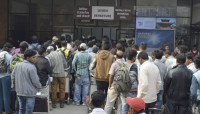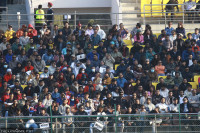Opinion
A half-hearted effort
The NC-UML proposal on the judicial system and form of government does not reflect the spirit of federalism
Prakash Bom
The common proposal of the ruling parties—Nepali Congress (NC) and CPN-UML— on the judicial system does not fully reflect the fundamentals of administrative or asymmetric federalism—which is more decentralised in terms of powers and relationships in political, administrative, and fiscal arrangements between the units of governments.
For example, under administrative federalism, the federal (central) government sets quality standards for public (federal funded) projects and the local jurisdictions decide which projects to carry out. The reason being, the central government cannot distinguish which project is useful to particular units of the government. As a result, administrative federalism always tends to let regional and local units of the government decide for themselves.
Powerful centre
Law enforcement and the judiciary under administrative federalism are formed at the regional and local levels by the local units of government. The constitution sets the legislative criteria to form the system at the local level, in line with the Supreme Court, but it works independent of hierarchy, unlike in the NC-UML proposal, which recommends the Judicial Council to appoint judges for the entire nation. Again, if the police or law enforcement is to be arranged in a similar fashion, then this common proposal will have no spirit of administrative or asymmetric federalism.
For the Judicial Council of the central government to appoint judges to the districts of regional or state governments is against the spirit of federalism. This setup overrules and violates the independence of a regional judiciary system. Even under administrative federalism, it is the regional government’s right and responsibility to set up a regional judiciary to deliver justice. Therefore, the power of the central government to manage the judiciary of the entire nation undermines the right to self-determination and autonomy of the regional governments under any form of federalism.
Moreover, if each regional government under administrative federalism is to have executive, legislative, and judiciary branches of government, then it must have its own judiciary system or ‘Judicial Council’ to establish an independent justice system under the constitution of the nation. Besides, each regional unit without its judicial branch of government will have no government, only an administrative unit similar to the current district administration, which was set up during the Panchayat.
So, senior NC-UML leaders need to ponder this issue with a vision to do away with the culture of impunity. That will not be possible in a country like Nepal if there is no independence of the judiciary at the national, state or regional levels under administrative federalism. Besides, the system cannot be independent under the Judicial Council, which will appoint judges for the entire nation.
If this contentious provision in the NC-UML proposal goes through, Nepal will have regional units without a judiciary. As a result, the branches of the executive and legislative of the regional unit will all have an illegitimate form of government.
Form of government
Another controversial issue in the proposal is on form of government. The NC-UML, in the common proposal, have chosen a modified Westminster parliamentary form of government. It has a rider that prevents ‘a vote of no confidence’ for two years as a new provision. But the rest remains the same as now. Given the Nepali political culture, this form of government lets political parties and leaders play dirty politics for the position and power of the post of prime minister. People are sick and tired of this system and desire change towards a system that is less corrupt and more stable. Therefore, a directly-elected executive head of the federal government, even in a parliamentary form of government is the need of the hour under administrative federalism, which has the provision of impeachment.
Similarly, the formation of a regional government assembly must have an electoral mechanism. The members of the assembly must be elected either through the First-Past-the-Post or proportional representation electoral system. The culture of nomination must be eliminated in the House of Representatives under federalism.
The NC-UML common proposal is also unclear on regional and local government formation. As a matter of fact, the number of regions or states matters little, as long as the electoral system is scientific and inclusive in terms of representing the demographical diversity of multiple ethnicities, gender, marginalised identities, and deprived communities. However, naming of the regions or states should not be a contentious issue because the NC-UML’s proposal has a provision that at the request of regional or state government, the regional or state assembly can change the name. But, if the names need to be changed for a second time, the regional or state government needs to obtain permission from the central government and then obtain two-third votes in the state assembly to ratify the proposal.
But federalism is not a rigid system. Rather, it has ample mechanisms for amendments that allow governments at different levels to experiment with policies and programmes to address social injustice and provide equal economic opportunities to all citizens. But, it seems that senior political leaders see federalism through the eyes of the status quo of the unitary system that they grew up with and have a hard time letting go of the central control mechanism. It is perhaps difficult for their old political mindset to accept federalism with a directly elected executive head of the federal government, as opposed to a young generation of politicians. Hopefully, senior NC-UML leaders will reconcile their proposal with a younger generation of leaders and the opposition to promulgate a new constitution.
Bom is associated with the Non-Resident Nepali Association, New York, the US




 16.12°C Kathmandu
16.12°C Kathmandu









%20(1).jpg&w=300&height=200)

